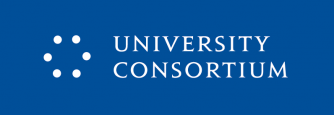UC Anniversary
Comments from our Principals
Roy Allison, St. Antony´s College, University of Oxford
The UC now records a half decade of achievement. Notably it has sustained rigorous and joint discussion and debate on relations between Russia, EU states and the US, among students and specialists in all these states, when the opportunities for such exchanges have become increasingly rare and fragmented. Postgraduate students have often gained their first opportunity to directly explore the beliefs and reasoning of their peers from other social and political cultures and upbringings, and sometimes to confront their own stereotypes, in exploring topical contemporary issues.
In this way the UC has carried forward the spirit of critical enquiry of decades of researchers in the Russian and Eurasian Studies Centre at St. Antony’s College, while providing a valuable layer of experience for selected students, outside their formal coursework, in the Russian and East European Studies programme in Oxford’s Area Studies department (OSGA). ‘At five years’ the UC has also created a unique network for internationally oriented young professionals and researchers, some of whom will surely commit themselves to the essential, even urgent, task of creating a more cooperative and predictable international environment.
David Cadier, SciencesPo
The University Consortium (UC) is tremendously valuable for its emphasis on the younger generation, its genuine cross-regional character and its distinctive blend of intellectual engagement. UC Fellows are (at) the heart of the initiative. For Sciences Po students, UC Modules, the annual conference and the alumni network have provided unique opportunities to establish intellectual, personal and professional bonds, and exchange thoughts and ideas, with peers from Russia, North America and Europe. Considering that the Cold War mental structures have not collapsed along with the Berlin wall – and given the unstable world they are likely to inherit – this emphasis on the new generation is especially important. At a time where political channels are largely obstructed and where the media easily fall into cursive caricatures, the UC provide a platform for students, scholars, analysts and former and current practitioners from the three regions to meaningfully, substantively and constructively interact. The UC is genuinely inter-regional, whether in its intellectual outlook, its network, its workings or its reach. It is at the same time an institutional partnership, a training platform, a research community and an idea laboratory – it is highly valuable to Sciences Po in all these dimensions.
Alexander Cooley, Harriman Institute, Columbia University
As we celebrate the 5th anniversary of the UC, I am struck by how quickly it has established itself as an integral part of the Harriman community. Currently enrolled students in our MA program enthusiastically apply to participate in the sessions, while past fellows eagerly return to enrich conversations and help advise their peers. In other words, the UC has already become a multi-generational network for shared experiences and the expression of viewpoints about the state of US-Europe-Russia relations that has become resilient and enduring in its own right. My other thought is just how challenging the past five years have been politically in the wake of the Crimea crisis and Ukraine conflict. Our relations have been strained by a number of controversial issues and political developments including waves of sanctions, the abrogation of treaties, NATO expansion, allegations of mutual interference in each other’s domestic affairs, as well as the Mueller investigation of Russian interference in the 2016 US Presidential election. Although members do not necessarily see eye-to-eye on these contentious issues, what makes the UC truly meaningful is that it has embraced, not shied away from, openly airing them and the grievances associated with them. In this way, the UC differs markedly from other fora which, in the interests of achieving short-term collaboration, adopt more sanguine agendas or look for less controversial areas for dialogue. And in my experience, having difficult conversations actually brings our communities closer- it encourages candor and the respectful expression of real convictions, which generates empathy even if we maintain substantive disagreements. I could not be prouder to be associated with the UC and its thoughtful work and I look forward to expanding our network and confronting new challenges along with our remarkable colleagues, students and partners for many more years.
Andrey Sushentsov, MGIMO
The UC is a rare and valuable network for education of upcoming professionals in Russia, EU and the US. The UC helps them develop empathy and cognitive skills necessary to navigate often conflictual foreign relations in the Euro-Atlantic. Widespread problems with analysis and decision-making on international issues testify to a dramatic fact - the still deep imperfection of a humankind armed with the destructive tools of the modern technological world. This indicates both the objective limitations and great responsibilities for a diplomat, statesman and scholar engaged in international affairs.



